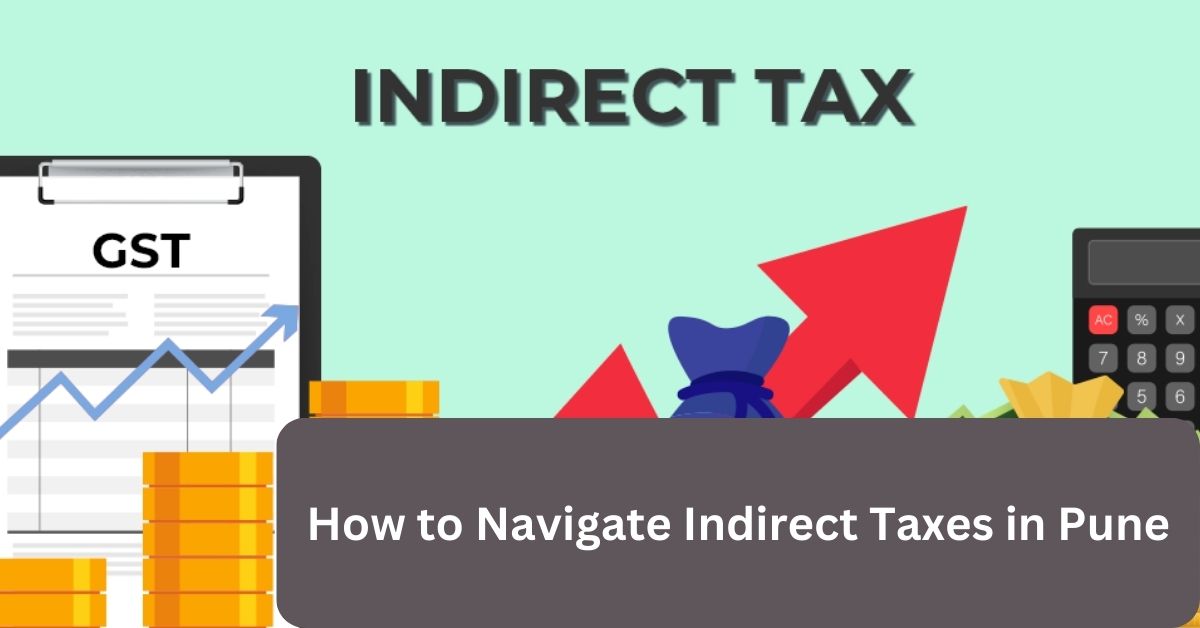Managing indirect taxes is an important part of running any business, especially in a place like Pune, where tax rules keep changing and compliance can get tricky. These taxes affect more than just paperwork. They can impact your pricing, day-to-day decisions, and even how much profit you make in the long run.
If you’re not up to date, it’s easy to make mistakes or miss out on benefits like input tax credit. Whether you’re a freelancer, small business owner, or managing a larger setup, understanding how indirect taxes work can help you stay on track and make smarter choices.
If you need expert support, trusted professionals offering some of the best indirect tax services in India can guide you through the process. This guide will help you understand the basics and manage indirect taxes more effectively for your business.
An Overview of Indirect Taxes
An indirect tax is a type of tax that is levied on goods and services rather than on income or profits. The burden of these taxes is passed on to the consumer. These taxes are collected by intermediaries such as retailers or service providers and paid to the government.
In India, indirect taxation is governed primarily by the Goods and Services Tax (GST), but taxes like excise duty and customs still apply to specific items.
An indirect tax is a form of taxation that is not paid directly to the government by the end consumer. Instead, it is included in the price of goods or services. For example, when you buy a product at a store, GST is already adjusted into the price. The seller then deposits this tax with the government.
This system makes tax collection more efficient, but it also means that businesses must stay watchful with their filings and documentation. That’s why many turn to professionals offering the best indirect tax services in India to stay compliant and avoid unnecessary hassles.
Types of Indirect Taxes for Businesses
The prime example of indirect tax in India is GST (Goods and Services Tax), however, there are still many different types of taxes. Some of them are mentioned below:
GST (Goods and Services Tax):
GST is the most common indirect tax in India today. It replaced multiple cascading taxes and brought uniformity across states. Businesses in Pune must register for GST if their turnover exceeds a specific threshold.
Excise Duty:
Although excise duty has mostly been subsumed under GST, it still applies to certain products like petroleum and alcohol.
Custom Duty:
This is levied on goods imported into India. Pune-based businesses involved in import/export must be aware of customs regulations and duty structures.
VAT (Value Added Tax):
Value-added tax is levied on the added value of the product at each stage. It was applicable before GST and is now relevant only for select products such as petroleum. Businesses dealing in these must still comply with VAT regulations.
Service Tax:
Like VAT, service tax is now part of the GST structure. However, older cases and audits may still require knowledge of this tax.
Central Sales Tax (CST):
CST applied to interstate sales before GST. While it’s no longer levied, old assessments may still come up in audits.
For comprehensive support, many companies choose a specialized indirect taxation company in India that understands both the old and current tax systems.
How Does an Indirect Tax Work?
Indirect taxes are included in the retail price of products and services. Unlike income tax, which is deducted directly from your earnings, these taxes are paid by consumers without any separate transaction.
For example, when a business in Pune sells a laptop, GST is added to the price. The buyer pays the tax, and the seller remits it to the government. In the case of customs or excise, the tax is added during production or importation and factored into the final price.
Features of Indirect Tax
Indirect taxes have a few key traits that make them different from direct taxes. Knowing these can help you understand how they work and how they affect your business. Here are some simple features to keep in mind:
- Tax Passed to Consumer: The Final tax burden lies with the consumer.
- Collected in Phases: Levied at each stage of production and distribution.
- Broad Base: Covers a wide range of goods and services.
- Regressive in Nature: Affects lower-income groups more, as they spend a larger portion of their income on taxed goods.
- Easier to Collect: Businesses collect and remit the tax, simplifying enforcement.
To handle these features effectively, especially with evolving compliance norms, many businesses partner with a trusted firm that offers indirect tax services in Pune.
Choose Sachin Gujar & Associates for Indirect Tax Support
When it comes to navigating the world of indirect taxation, local expertise makes a difference. Sachin Gujar & Associates is a respected name in indirect taxes services in pune, known for their precision, experience, and in-depth knowledge of Indian tax laws.
Whether you’re a startup, an SME, or a growing enterprise, our team offers tailored solutions covering GST filing, audit support, direct tax advisory services, NRI tax and investment services. If you’re searching for the best indirect tax services in India, our client-first approach and technical know-how stand out.
Why Choose Us?
- Dedicated team of tax professionals
- Experience with multi-industry tax compliance
- Local knowledge with national expertise
- End-to-end indirect tax consulting and support
Final Thoughts
Indirect taxes might not always be obvious, but they play a big role in how your business runs. They affect your pricing, your paperwork, and how well you stay on the right side of the law. Trying to manage everything on your own can be stressful, especially with rules that keep changing.
If you’re in Pune and want to keep things simple and stress-free, working with experienced professionals can make all the difference. Sachin Gujar & Associates, a trusted indirect taxation company in India, can guide you through every step, so you can focus on your business instead of getting buried in tax details.



